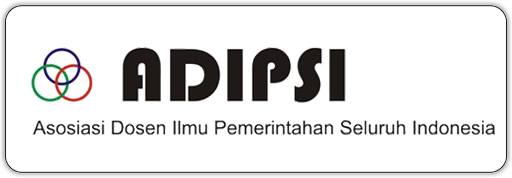Leadership Patterns in Improving the Quality of State Civil Apparatus (ASN) Training in the Human Resources Development Agency (BPSDM) of Riau Islands Province
DOI:
https://doi.org/10.31629/kemudi.v7i1.4939Keywords:
Total Quality Management; Leadership; Competency Development;Abstract
Training is one of the competency development pathways for the State Civil Apparatus. To realize the implementation of quality, quality and standardized training for State Civil Apparatus in a sustainable manner, Human Resources Development Agency of Riau Islands Province implements training quality assurance through accreditation of training institutions. One of the elements assessment is the role of leaders in improving the quality of training through their contribution to building a quality culture, improving quality and building a positive work culture to improve performance. This study aims to analyze the role of the leader of the Human Resources Development Agency of Riau Islands Province in building a quality culture in the organization. The research method used is a mixed method (mix-method). The results showed that in most indicators of the assessment of the leader's role, respondents gave a very good assessment of the role of the leader Human Resources Development Agency of Riau Islands Province in building a quality culture. Leadership in the Human Resources Development Agency of Riau Islands Province is considered capable of being the main key to realizing the best quality of performance produced by the organization. The efforts of the Head of the Human Resources Development Agency of Riau Islands Province to create collaboration and coordination in achieving performance must continue to have the support and involvement of all employees.
Downloads
References
Barbosa, F. M., Gambi, L. do N., & Gerolamo, M. C. (2017). Liderança e gestão da qualidade – um estudo correlacional entre estilos de liderança e princípios da gestão da qualidade TT - Leadership and quality management – a correlational study between leadership models and quality management principles. Gestão & Produção, 24(3), 438–449. http://www.scielo.br/scielo.php?script=sci_arttext&pid=S0104-530X2017000300438&lang=pt%0Ahttp://www.scielo.br/pdf/gp/v24n3/en_0104-530X-gp-0104-530X2278-16.pdf%0Ahttp://www.scielo.br/pdf/gp/v24n3/0104-530X-gp-0104-530X2278-16.pdf
Charantimath, P. M. (2017). Total Quality Management. Pearson India Education Services Pvt. Ltd.
Chen, R., Lee, Y. D., & Wang, C. H. (2020). Total quality management and sustainable competitive advantage: serial mediation of transformational leadership and executive ability. Total Quality Management and Business Excellence, 31(5–6), 451–468. https://doi.org/10.1080/14783363.2018.1476132
Hussain, M., & Khan, J. (2020). Key Success Factors of Total Quality Management (TQM) for the Hospitality Sector. A Critical Review of the Literature. European Journal of Hotel and Tourism Research, 8(2), 1–17. https://doi.org/10.37745/ejhtr/vol8.no2.pp1-17.2020
Irawati, E., Suwarno B A Lembaga, D. Y., Negara, A., Veteran, J., 10, N., Pusat, J., Stia, P., Jakarta, L., Administrasi, J., & Pejompongan, I. I. (2020). Efektifkah Pelaksanaan Penjaminan Mutu Melalui Akreditasi Lembaga Pelatihan Pemerintah Di Indonesia? the Implementation of Quality Assurance Through Accreditation of Indonesia’S Government Training Center: Is It Effective? Jurnal Borneo Administrator, 16(3), 291–312. http://samarinda.lan.go.id/jba/index.php/jba/article/download/713/325/
Jens J. Dahlgaard, K. K. and G. K. K. (2002). Fundamentals of Total Quality Management Process analysis and improvement. Taylor & Francis.
Kalejaiye, P. O., Sokefun, E., & Adedeji, A. O. (2015). Leadership and Human Resources Development in Nigeria: Factors for National Development. The Nigerian Journal of Sociology and Anthropology, 13(1). https://doi.org/10.36108/njsa/5102/13(0170)
Karyotakis, K., & Moustakis, V. (2014). 10.5937/sjas11-6751 = Reinvention of the public sector: Total quality management and change management. Singidunum Journal of Applied Sciences, 11(2), 30–44. https://doi.org/10.5937/sjas11-6751
Mustafa, E. M. A., & Bon, A. T. (2012). Role of top management leadership and commitment in total quality management in service organization in Malaysia: A review and conceptual framework. Elixir Human Resource Management, 51(2012), 11029–11033. http://www.elixirpublishers.com/articles/1351510007_51 (2012) 11029-11033.pdf
Oakland, J. (2011). Leadership and policy deployment: The backbone of TQM. Total Quality Management and Business Excellence, 22(5), 517–534. https://doi.org/10.1080/14783363.2011.579407
Pimentel, L., & Major, M. (2016). Key success factors for quality management implementation: evidence from the public sector. Total Quality Management and Business Excellence, 27(9–10), 997–1012. https://doi.org/10.1080/14783363.2015.1055239
Prasetyo, N. M. F. dan A. W. (n.d.). ASN Corporate University: Sebuah Konsep Pendidikan Dan Pelatihan Pada Era Disruptif. Civil Service Journal, VOL. 13(No.2), 51–62.
Prestiadi, D., Zulkarnain, W., & Bambang Sumarsono, R. (2020). Visionary Leadership in Total Quality Management: Efforts to Improve the Quality of Education in the Industrial Revolution 4.0. 381(CoEMA), 202–206. https://doi.org/10.2991/coema-19.2019.40
Psychogios, A., & Priporas, C. (2015). Understanding Total Quality Management in Context: Qualitative Research on Managers’ Awareness of TQM Aspects in the Greek Service Industry. The Qualitative Report, 12(1), 40–66. https://doi.org/10.46743/2160-3715/2007.1643
Pynes, J. E. (2013). Strategicy Planning for Public and Non-Profit.
Rahmawati, S. N. A., & Supriyanto, A. (2020). Pentingnya Kepemimpinan dan Kerjasama Tim Dalam Implemeentasi Manajemen Mutu Terpadu. Jurnal Dinamika Manajemen Pendidikan, 5(1), 1. https://doi.org/10.26740/jdmp.v5n1.p1-9
Roeleejanto, C. (n.d.). Effects of Leadership, Competency, and Work Discipline on the Application of Total Quality Management and Employees’ Performance for the Accreditation Status Achievement of Government Hospitals in Jakarta, Indonesia. Scientific Research Journal (SCIRJ, Volume III(Issue XI).
Sallis, E. (2005). Total Quality Management in Education. Taylor & Francis e-Library.
Suryanto, A. (2021). Transformasi Pengembangan Modal Insani Sektor Publik di Indonesia. Asosiasi Profesi Widyaiswara Indonesia.
Susanto, A. B. (2010). Strategi Peningkatan Manajemen Mutu Pendidikan Dan Pelatihan Dengan Menerapkan Model Pendekatan Sistem Manajemen Mutu ISO 9001: 2008?: Studi Kasus pada Pusat Pendidikan dan Pelatihan Pegawai Kementerian Pendidikan Nasional. [Universitas Pendidikan Indonesia]. eprint_fieldopt_thesis_type_phd thesis,
Suwandej, N. (2015). Factors Influencing Total Quality Management. Procedia - Social and Behavioral Sciences, 197(February), 2215–2222. https://doi.org/10.1016/j.sbspro.2015.07.361
Talib, F. (2000). An overview of total quality management?: understanding the fundamentals in service organization An Overview of Total Quality Management?: Understanding the Fundamentals in Service Organization. 1(September 2013), 1–20.
Widyatmoko, W. F., Pabbajah, M., & Widyanti, R. N. (2020). the Character of Leadership in Human Resources Development: a Critical Review. International Journal of Management, Innovation & Entrepreneurial Research, 6(2), 01–09. https://doi.org/10.18510/ijmier.2020.621
Witesman, E. M., & Wise, C. R. (2009). The centralization/decentralization paradox in civil service reform: How government structure affects democratic training of civil servants. Public Administration Review, 69(1), 116–127. https://doi.org/10.1111/j.1540-6210.2008.01945.x













